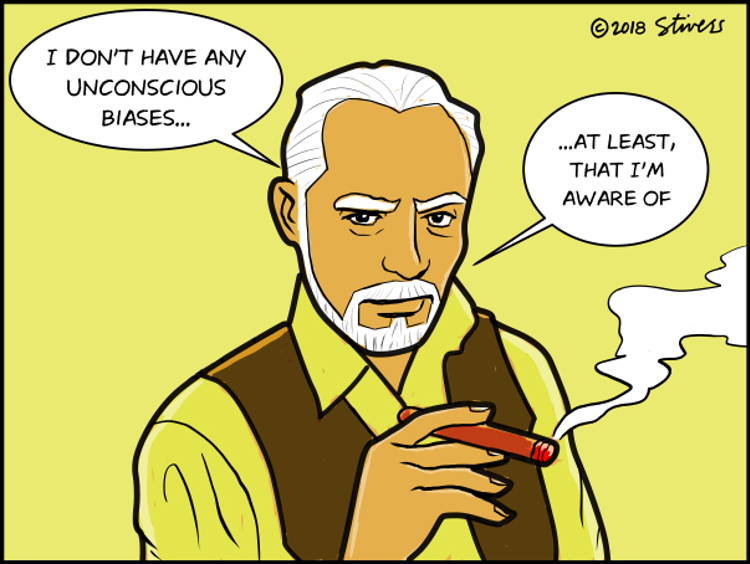First things first - what is bias?
Execute one Google Search on bias and you will likely find a whole slew of definitions and meanings. Most of them, however, share a common idea: bias is 'an often unconsciously built-in way of thinking that every individual has, and that is shaped by the environment they reside in and the experiences they encountered'.
And - it may seem forward - but some form of bias resides in all of us. Whether it comes to the way we approach situations, the way we perceive others... And that's human. What's important is how we handle this bias. What actions can we take ourselves to prevent it from influencing matters such as recruitment?
Bias in business - here's how we notice bias in recruitment
Discrimination, gender inequality, age-based exclusion,... These are challenges we face as a society. And they do not disappear when we enter our offices.
Yet a person's ethnicity, gender, religious affiliation, sexual orientation, age, family situation and more should not determine whether he or she is a suitable worker at all. Europe institutions even explicitly forbid bias in recruitment - albeit the rules are sometimes quite vague when it comes to this topic.
Moreover, we believe exclusion on the basis of previous factors is not just (and very!) morally wrong - it also serves us no good at all economically. We really need everyone's talents and skills to face the hardships the tense job market faces today. And that's where our solutions come in.


A united front against bias - but where do we start?
People are people and you cannot change humanity. Software, however, tells a different story. When developing matching tools, we have control over the quality, input and output. Software can therefore make possible what humans cannot - it can eliminate bias and focus solely on what truly matters, like skills and talents.
That is, at least, if we maintain a critical mindset towards it. Every day a new tool appears, or at least it seems that way sometimes. And while those new tools lay a fine foundation for matching, we should not consider them sacred.
Many applications work with machine learning, deep learning or AI of some sort. Therein lies a danger. Because whilst these new technology offers us a very good basis to start upon - they 'don't invent anything new'. They are based upon data and principles that already exist and which, by definition, are not bias-free.
And did you know Europe even forbids the use of not-compliant AI tools in recruitment? Albeit admittedly the rules on this are - again - still somewhat vague.
In addition, such tools often 'can't invent anything new under the sun'. What do we mean by this? Before we make it clear to a tool that a forklift operator could potentially also be a forklift driver or a forklift operator, the system does not know this. So it's up to us to provide that context.
At theMatchBox, we have both the tools, the team and the expansive expertise to remain critical towards new technology. We are able to stay ahead of the curve when it comes to enabling new tools and can form our own hybrid solutions combining various tools such as AI, but also smart tagging, semantic job searching,... (read all about those here!).
Finally, we have adapted our way of thinking. We no longer start from things like the CV or the vacancy to be filled, but we view matching as a process that starts from the candidate him- or herself. And more specifically from the relevant skills and talents they possess.
What is he or she good at? What motivates him or her? What does he or she actually want to do? Those are the key questions. Not how many years the candidate has on the counter or what words he put down on his CV, we believe
The golden rules bias-free matching in a nutshell:
-
Handle technology critically, be aware of potential bias
& clearly opt for a zero-bias strategy. -
Put the candidate at the centre of your matching process.
-
Be aware of the relative value of the CV.

Want to know more about bias-free matching, candidate-driven recruitment and more?
Watch the keynote Jan gave (in Dutch) at the ImpactWork Seminar for Equal Opportunities in November below:
